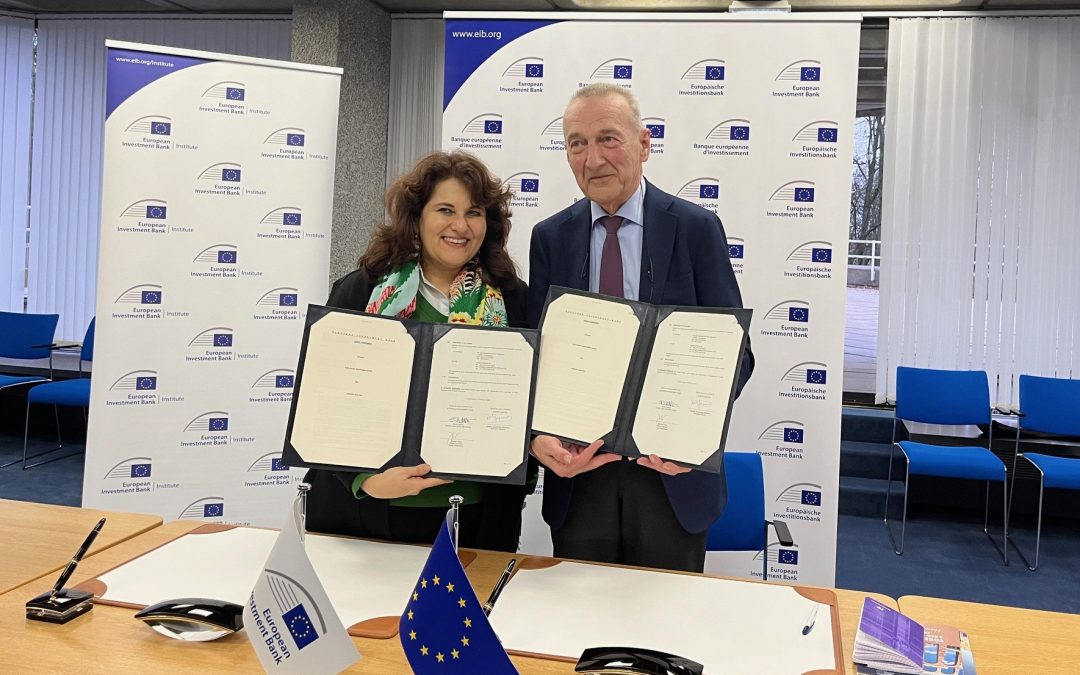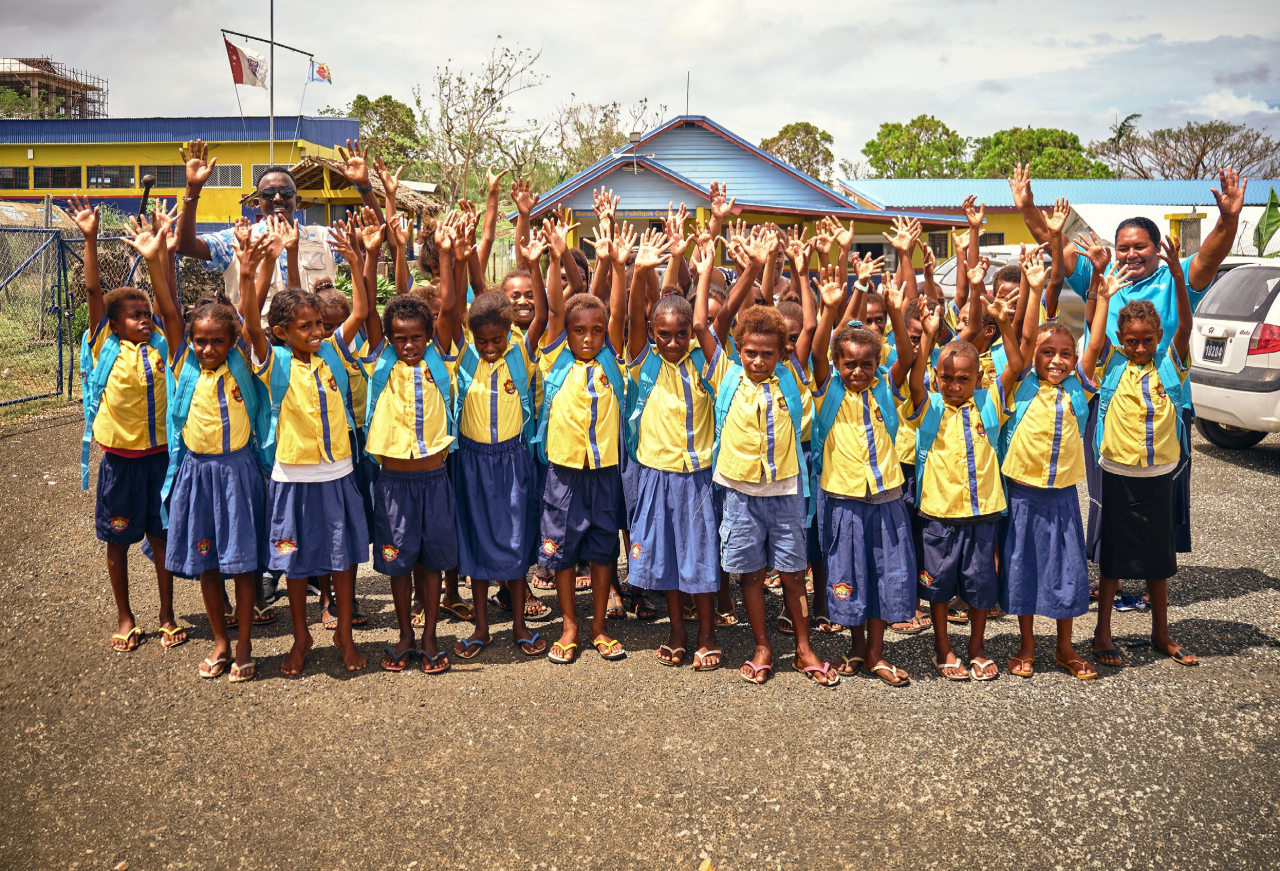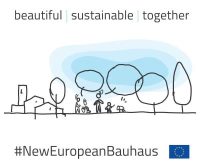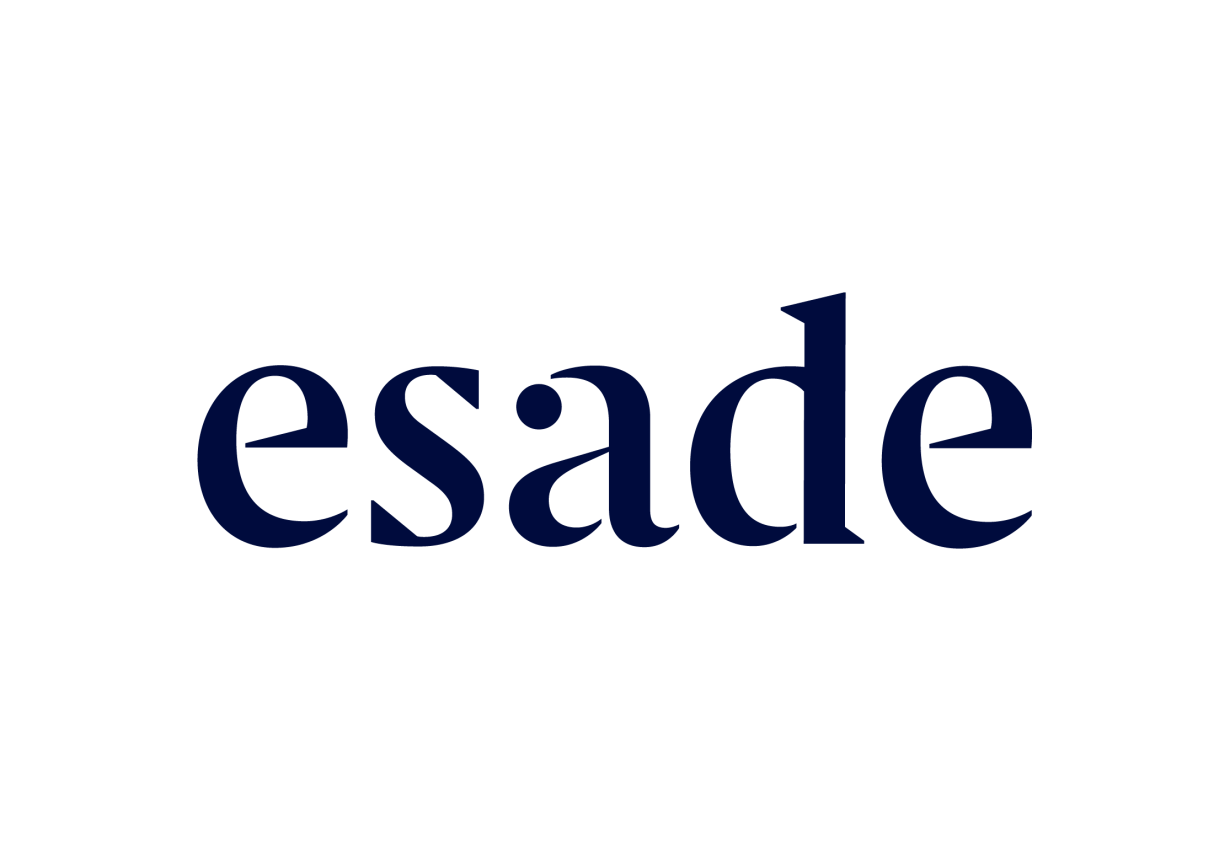The Institute has renewed its support to Europa Nostra, the largest and most representative heritage network in Europe, through a grant agreement supporting the 7 Most Endangered programme.
On Thursday 8 February 2024, Shiva Dustdar, Dean and Director of the EIB Institute, and Piet Jaspaert, Vice-President, Europa Nostra, signed the agreement in Luxembourg at the EIB premises with many of the programme’s volunteers attending.
“This is a win-win partnership between a vibrant civil society organisation and EIB experts, both active and retired”, Shiva Dustdar said. “It also helps shedding light on what the EIB Group can do for cultural heritage in its funding, blending and advising capabilities and contributes to the Group’s financing pipeline. I look forward to building upon this successful cooperation to bring it to new heights in the years to come notably through new thought leadership and capacity building initiatives. I also hope that going forward we bring in a gender lens to our cultural heritage support, to help us understand the evolving role of women throughout history from that vantage point”.
Since 2013, the 7 Most Endangered programme has been mixing the cultural expertise and lobbying work of Europa Nostra with the technical appraisal and rescue planning skills of the EIB.
Every year seven priority sites are selected. EIB experts carry out on-site missions and produce technical reports on the viability and phasing of the project recuperation as well as on the funding options. In specific cases the renovation may also call for loans from the EIB and/or grants from EU structural funds.
Sixty-three sites have been selected and a majority has been saved. Examples are the Hermitage of San Juan de Socueva (Spain), the Mafra Palace carillons, (Portugal), Romania’s wooden churches, the Art Nouveau synagogue in Subotica (Serbia), the Colbert swing bridge in Dieppe (France) or the Buzludzha Monument (Bulgaria).





